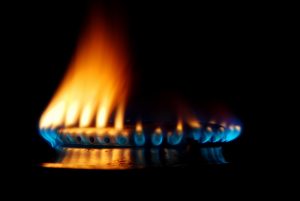
Everyone should feel safe in their own home, so check out the tips below to prevent emergencies and to improve home safety.
If you have concerns about the safety of your home, visit the Contact page to learn more about reporting your concerns.
Nobody can ignore the possibility of a fire happening where they live. Students often live in shared houses – multiple occupancy can increase the risk of fire. Follow this advice to reduce the risk of fire happening in your home.
- Test it Tuesday. Test your smoke and carbon monoxide alarms every week -Test it Tuesday is a good way to remember to test your alarms work. At a very minimum, there should be detectors on each floor of your home, ideally in the hallway or on the landing. Check that your alarms work – wait for the beep!
- Plan an escape route. Ask yourself this, if there was a fire in your home, how would you get out safely? It’s important to know the answer to this. Remember to keep the hallways, stairs and doors clear – this could be your escape route in an emergency.
- Be careful in the kitchen. Never cook when under the influence of alcohol or drugs, this impairs your judgement. It’s better to get a takeaway on the way home rather than cook and be at risk. Never put water onto burning fat, move a burning pan, or leave cooking unattended – doing all these things would put you at risk of getting hurt.
- Take care with candles. Don’t leave candles unattended and make sure they are not close to anything that could catch fire. If using tea lights, make sure you put them in a candle holder.
- Are you a smoker? Don’t smoke in bed – it’s too easy to fall asleep and not notice that a cigarette is still burning. Make sure you stub it out, completely out.
If a fire does take place, NEVER fight it yourself. Get out – stay out and dial 999!
South Wales Fire and Rescue Service carry out free Home Fire Safety Checks. They can also fit smoke alarms in your property for free. To arrange your visit, call 0800 169 1234 or get more information from their website.
Gas Safe Register is the official list of gas engineers who are qualified to work safely and legally on gas appliances. It has replaced CORGI registration. Only a Gas Safe registered engineer should fit, fix or service gas appliances.
Landlords have responsibilities for gas safety. By law your landlord must keep all gas appliances supplied for you to use in good condition. They must arrange for a Gas Safe registered engineer to carry out a gas safety check on them every 12 months and provide you with a copy of the landlord’s gas safety record.
Always
- Ask for a copy of the landlord’s current gas safety record before you move in.
- Cooperate with your landlord and let a registered engineer in when a gas safety check or servicing has to be done.
- Check the ID card of any gas engineer that comes to do work in your home. The engineer must be Gas Safe registered. The ID card will show what types of work the engineer is qualified to do, so be sure to check this.
Badly fitted and poorly serviced appliances can cause gas leaks, fires, explosions and carbon monoxide poisoning.
Carbon monoxide is a poisonous gas which can kill quickly with no warning. Know the six main signs and symptoms of carbon monoxide poisoning
- headaches,
- dizziness,
- nausea,
- breathlessness
- collapse
- loss of consciousness.
Don’t mistake the symptoms for a hangover.
If you think a gas appliance is faulty turn it off and let your landlord know immediately. In an emergency call the gas emergency helpline on 0800 111 999. If you feel unwell, seek medical help immediately.
To check a gas engineer is registered, check GasSafeRegister or call 0800 408 5500.
Student accommodation is can be tempting target for thieves, so here are some ways you can secure your home:
- Don’t attach your name or address to your house keys
- If you have a back gate or entrance, make sure it’s kept shut and secure at all times
- Make sure all doors and windows are locked when you head out
- Avoid keeping spare keys hidden under the front door mat or in other locations outside the property
- Keep valuables out of sight from windows
- If you’re going home for the holidays, take all your valuables with you and make sure everything is locked
Register all your possessions for free on immobilise.com, and mark your property with a UV pen – this will help us return items to you if they get lost or stolen.
Cycling is a very economic way of getting around and it’s important you keep your bike safe.
When buying a bike; make sure you budget for a good quality lock (or two), preferably a Gold rated D lock to make it secure and deter opportunistic thieves. Using two locks will keep your wheels and frame secure. It’s also a good idea to take out insurance and register your bike on immobilise.com or at free Bike Marking events run by the University Liaison team. You can find out your next/nearest one by emailing SwpStudentLiaisonCardiff@south-wales.police.uk.
Once you have your new bike it should be stored in a secure shed, garage or other immovable object. You should keep it out of public view and keep it locked up even at home.
When out exploring or rushing to lectures remember to securely lock your bike and take any parts which can be easily removed with you. You should avoid leaving your bike in dimly lit or isolated places.
If your bike does get stolen please contact the police on 101 or online. If you have registered it with Bike Register, please update your account to show that it is stolen.
If you have a car, don’t leave any valuables, bags or accessories inside your car as people may break your window to steal them.

